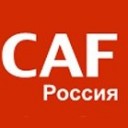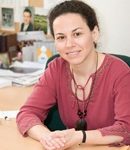 Emerging philanthropic cultures face many challenges – among them lack of tradition, inadequate legal and fiscal environment – and at the same time have lots of opportunities. Growing local high net worth donors is an issue that could fall into both camps: it is not easy to establish a role
Emerging philanthropic cultures face many challenges – among them lack of tradition, inadequate legal and fiscal environment – and at the same time have lots of opportunities. Growing local high net worth donors is an issue that could fall into both camps: it is not easy to establish a role
model of a philanthropist in society, and it is even more difficult to ensure that those wealthy and ultra-wealthy who already give achieve longer-term social change, not just personal satisfaction. Donor education may help to transform this challenge into an enormous opportunity as philanthropic money applied wisely and strategically can reach far, achieve sustainable results and create much-needed social change.
I facilitated a breakfast meeting on donor education at the recent Emerging Societies, Emerging Philanthropies International Forum in Peterhof and found the discussion enlightening and thought-provoking in many ways, so would like to offer my observations in the hope that this would be a start of conversation among those who are involved in donor education initiatives across the world.
Donor education in the emerging markets context is rather different from philanthropy education initiatives run in the US or the UK. The focus is of course on teaching donors how best to engage in philanthropy and develop effective giving programmes, however consideration has to be given to where emerging market donors are on their philanthropy journey and in what circumstances they are operating.
- Donors are often first-generation givers, with no tradition or heritage of giving behind them either at family or society level.
- They are often very pragmatic and engaged – looking for solutions and eager to see results.
- They operate in places where civil society organisations are neither prevalent nor readily available to partner with.
- They often operate within legal and fiscal frameworks that are not philanthropy-focused and either carry many barriers or lack basic incentives.
- Finally, private philanthropy is not recognized and often suffers from overall prejudice towards wealth
Our own experience of CAF is being built through a Foundation School – an education course that we have been running for the last five years in various parts of Europe for donors from Russia and Brazil. The breakfast session revealed that although there are no other initiatives that would be spread over multiple regions and continents, there is a great number of donor education projects being run within emerging market countries by various players. To mention just those who gathered in that breakfast room, they include Inyathelo in South Africa, TUSEV in Turkey, Sun Culture Foundation in China, Alternativas y Capacidades in Mexico, Banco de Invercion Social in Colombia, Association of Community Relations in Romania and our own CAF Russia and IDIS in Brazil. It was pretty amazing to see that so much is being done in the field of donor education, and with so little communication and sharing of lessons learned between these very distinguished and professional organisations!
And indeed the discussion reveled that we had a lot to talk about. I will mention just a couple of issues which I believe are shaping the agenda for donor education in emerging markets, as all participants seemed to be challenged by them.
A crucial question we all are wrestling with is how to create demand for donor education. Obviously one can just operate on the assumption that newly wealthy people who managed to build multimillion-dollar companies would easily accept that they need to be ‘educated’ about how to give money away. Creating peer networks, focusing on the exchange of ideas rather than conventional teaching, bringing in case studies and site visits are just a few ideas that were mentioned during the discussion. Still we all felt that finding the right words that would be appealing and convincing, and the right formats that would be good investment of time of these super-busy and important people, are very challenging and worth a collective brainstorming.
Another issue that came up was the impact of donor education. There is a degree of frustration among some of the organisations involved which is caused by a feeling that, despite all our best efforts, nothing really changes in the philanthropic behaviour of the ‘alumni’. To put the question more generally, how do we know that our donor education projects make an influence? Which factors can strengthen this influence? For example, what is the right mix of ‘western’ (US or European) experience and that coming from our own countries or other emerging contexts?
I believe choosing our own time horizon to manage our expectations of success would be one of the decisive factors here – when is it realistic to expect change in behaviour? From conversations with Foundation School participants we know that in many cases it just takes time for them to process certain ideas and they discover their value and relevance as they develop their philanthropic practice. So effects could be delayed and not obvious for a while, and we should not be put off by this factor.
After this discussion I am very hopeful that we are witnessing the birth a community of donor education practice. We all need to reconnect and put our heads together around issues which seem to be on everyone’s mind.
Maria Chertok is director of CAF Russia
For more information about the Forum
http://www.emergingforum.org








Comments (0)